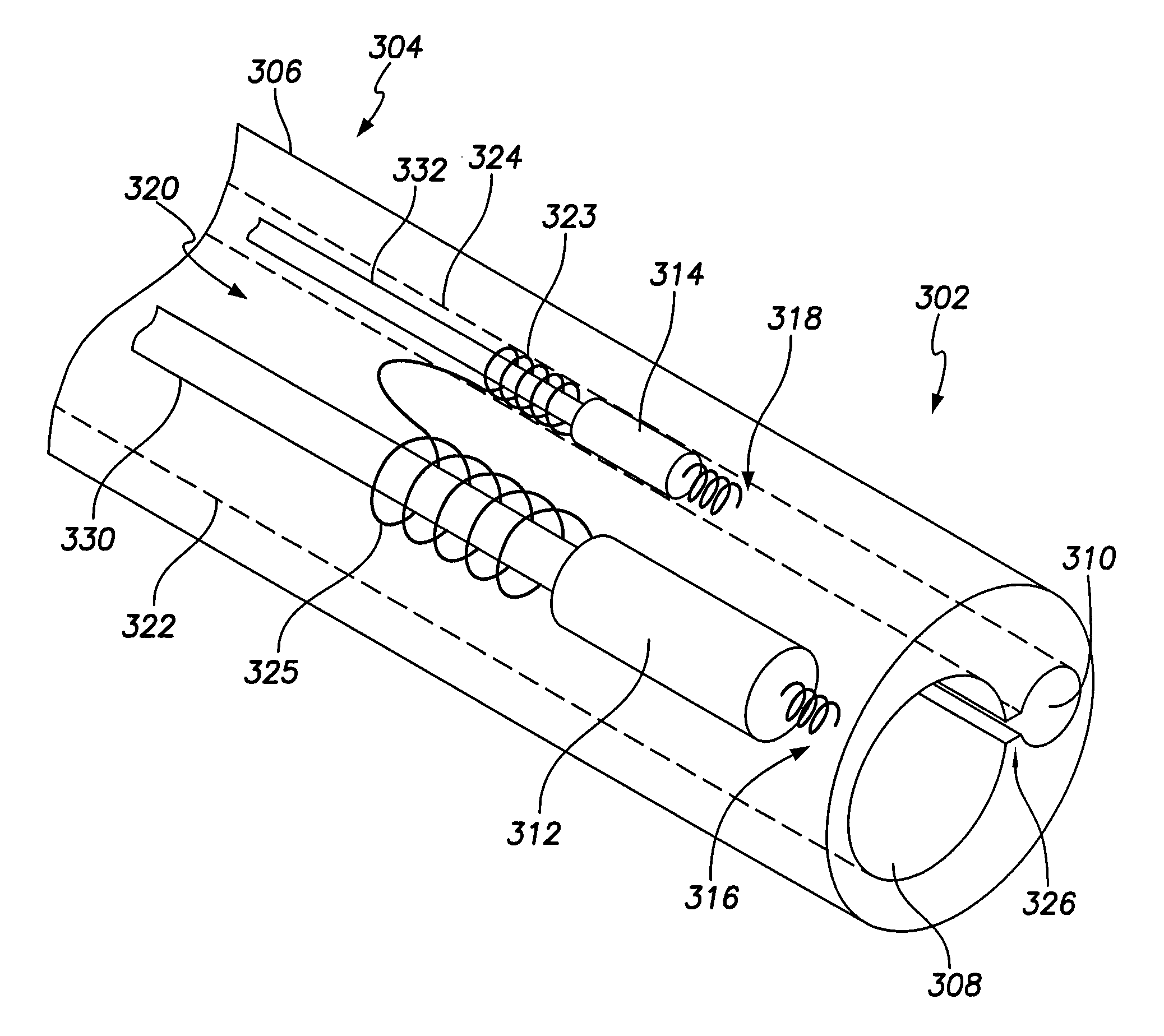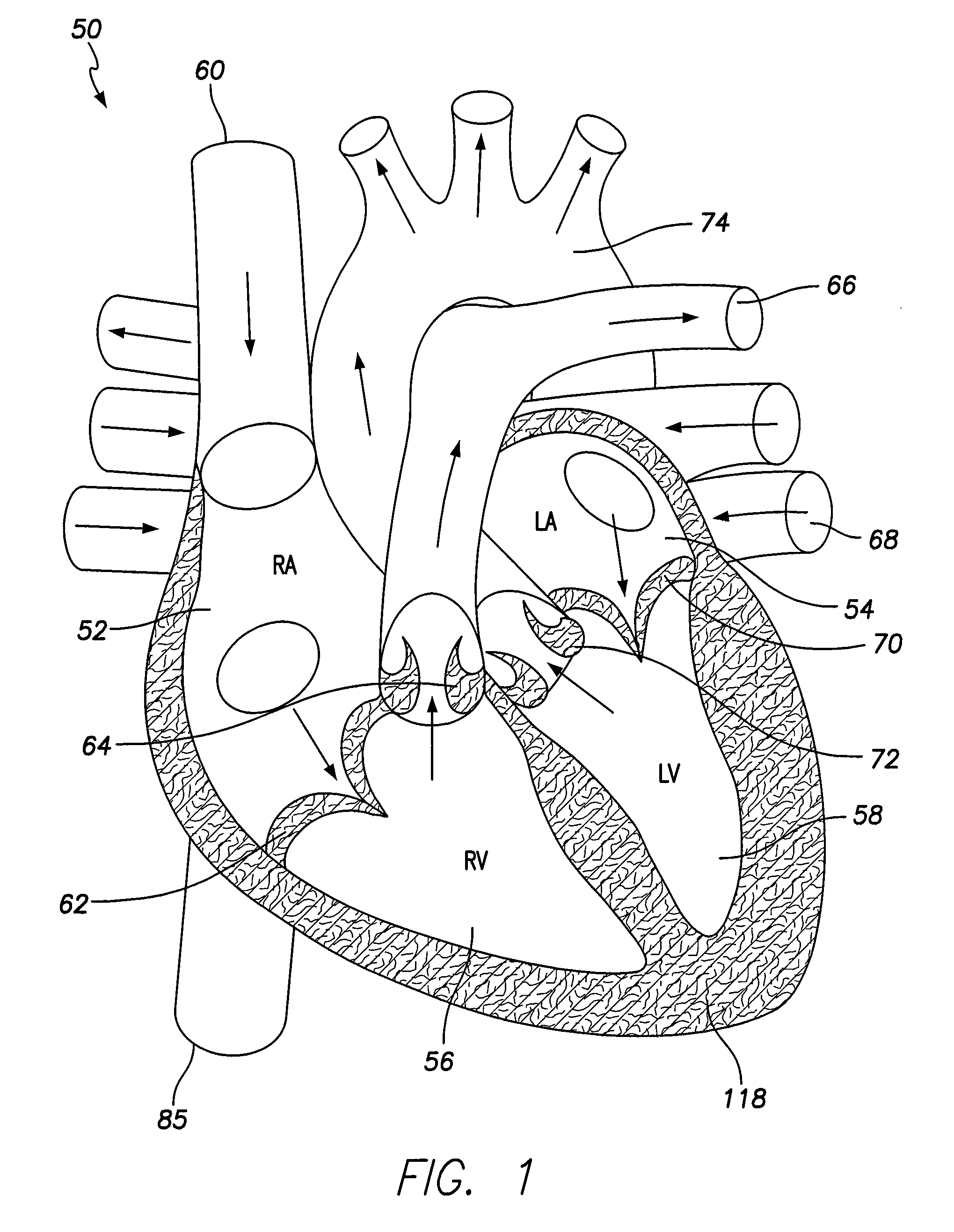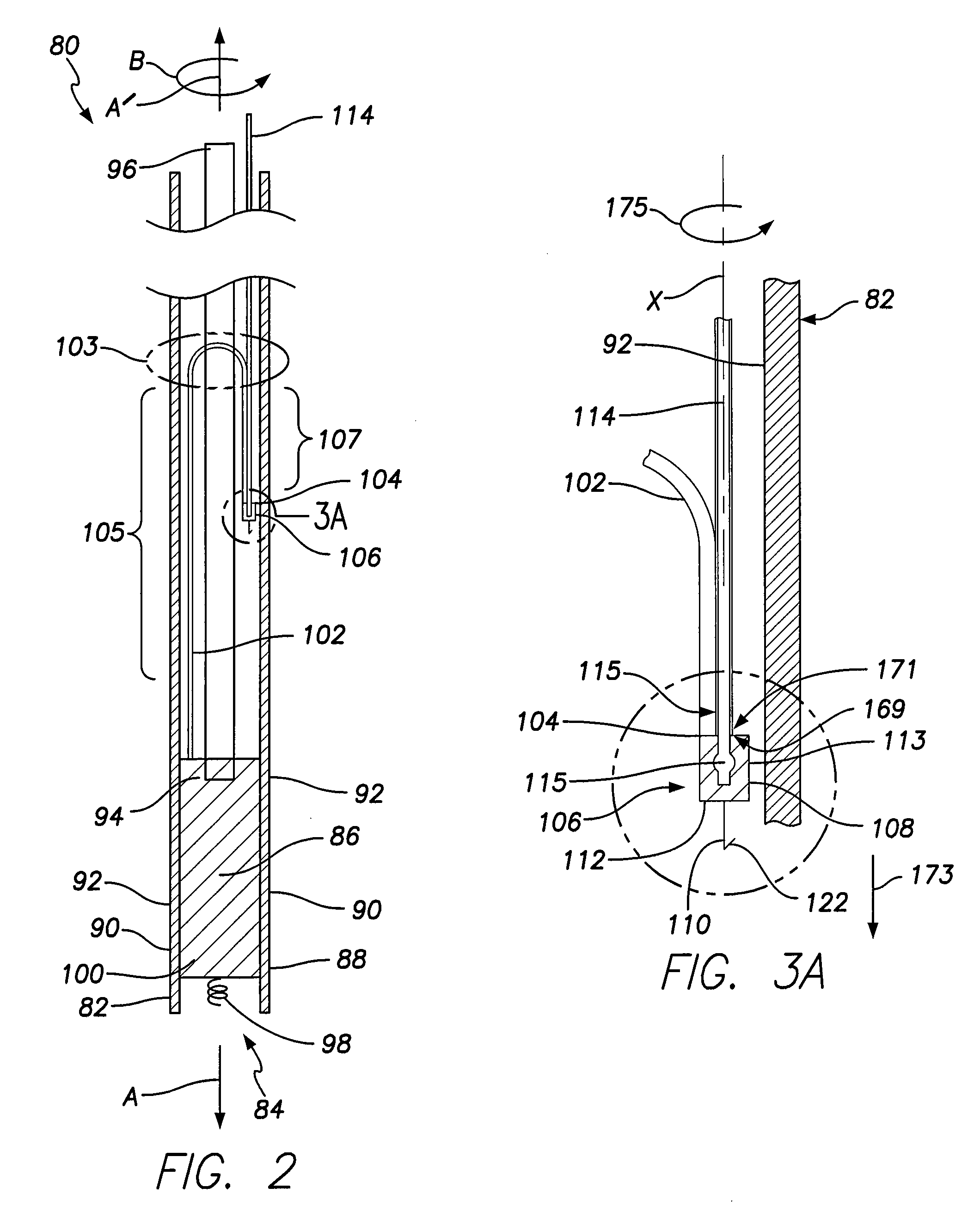Unitary dual-chamber leadless intra-cardiac medical device and method of implanting same
a medical device and dual-chamber technology, applied in the field of implanted medical devices, can solve the problems of increasing the risk of infection within the heart, imd to malfunction, and patient's twiddler's syndrom
- Summary
- Abstract
- Description
- Claims
- Application Information
AI Technical Summary
Benefits of technology
Problems solved by technology
Method used
Image
Examples
Embodiment Construction
[0036]FIG. 1 illustrates a simplified view of a human heart 50. The heart 50 is generally enclosed in a double-walled sac called a pericardium, which protects the heart 50. The outer wall of the heart includes three layers. The outer layer of the heart 50 is referred to as the epicardium, or visceral pericardium because it is also the inner layer of the pericardium. The middle layer of the heart 50 is referred to as the myocardium and is composed of muscle that contracts. The inner layer of the heart 50 is referred to as the endocardium and is in contact with blood that is pumped through the heart 50.
[0037]As shown in FIG. 1, the heart has four chambers, a right atrium 52, a left atrium 54, a right ventricle 56, and a left ventricle 58. In general, the atria 52, 54 are the receiving chambers, while the ventricles 56, 58 are the discharging chambers. Deoxygenated blood enters the heart 50 through the superior vena cava 60, for example, and passes into the right atrium 52. The blood i...
PUM
 Login to View More
Login to View More Abstract
Description
Claims
Application Information
 Login to View More
Login to View More - R&D
- Intellectual Property
- Life Sciences
- Materials
- Tech Scout
- Unparalleled Data Quality
- Higher Quality Content
- 60% Fewer Hallucinations
Browse by: Latest US Patents, China's latest patents, Technical Efficacy Thesaurus, Application Domain, Technology Topic, Popular Technical Reports.
© 2025 PatSnap. All rights reserved.Legal|Privacy policy|Modern Slavery Act Transparency Statement|Sitemap|About US| Contact US: help@patsnap.com



